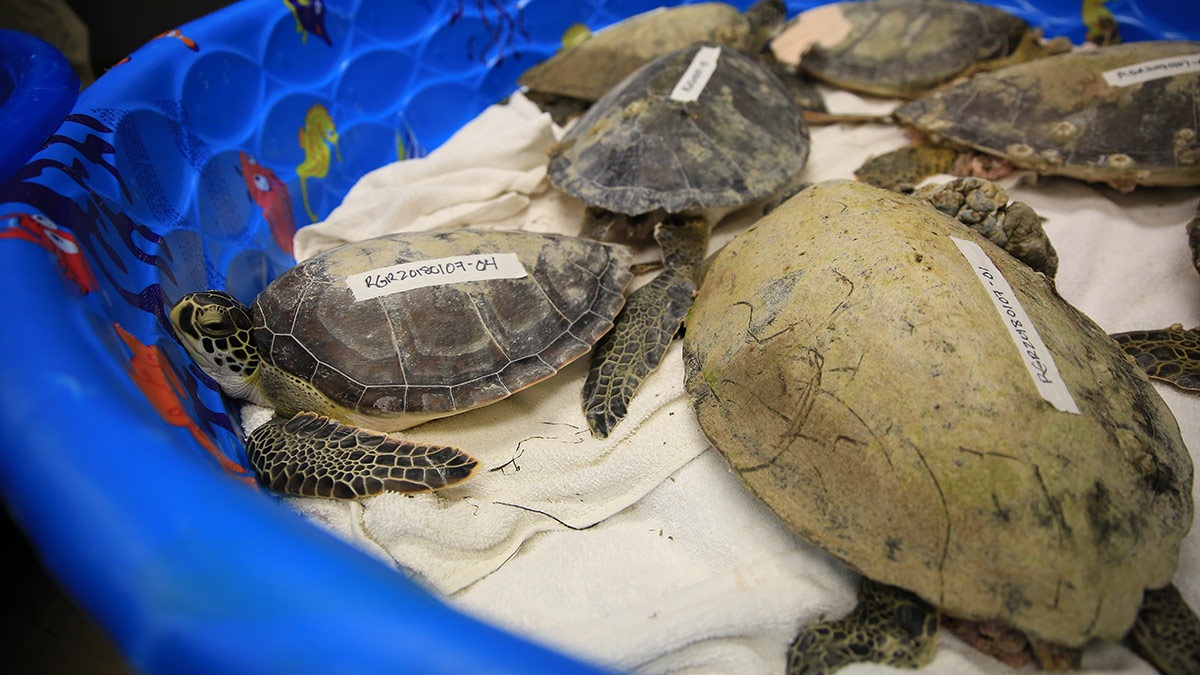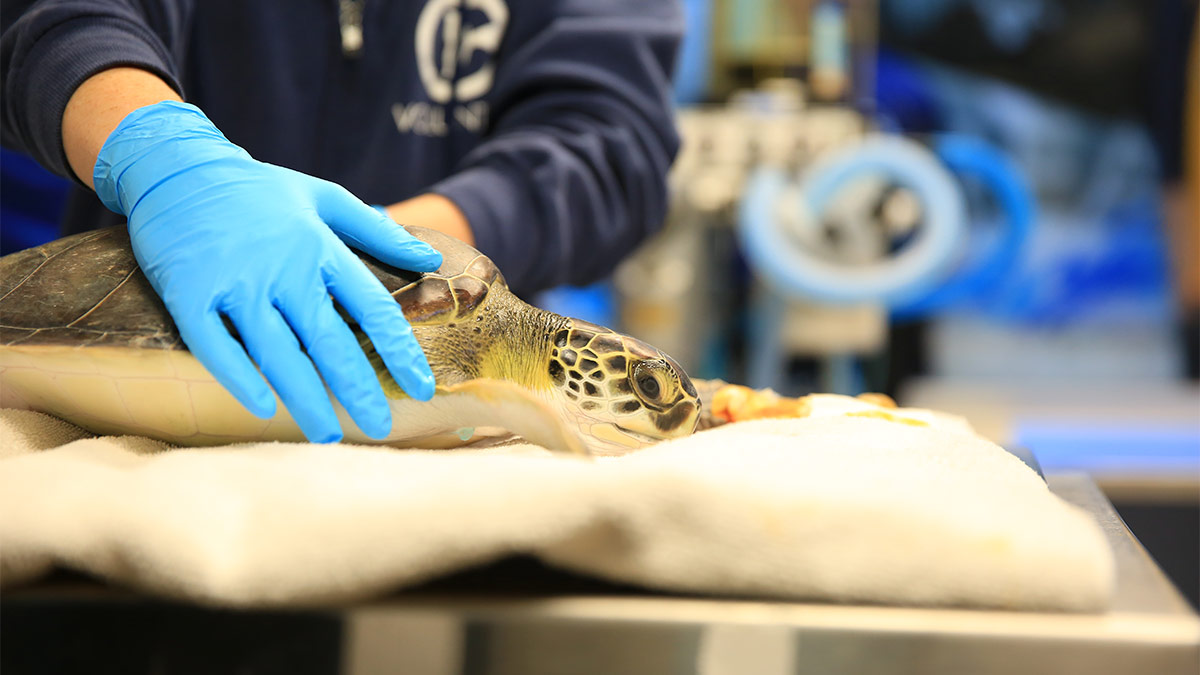Cold Weather Effects on Sea Turtles
Humans are warm-blooded, so we’re able to regulate our own body temperature, despite the outside temperature. We are able to put on hats, gloves, sweatshirts, and coats to stay warm, but sea turtles aren’t able to do any of that. Sea turtles are ectothermic, or cold-blooded, meaning that their internal body temperature is reliant on their external surroundings; as the temperature outside drops, the turtle’s body temperature also drops.
When sea turtles are exposed to frigid water temperatures over several days, their circulatory systems slow down and the turtles become lethargic – floating in the water or washing ashore, unable to swim or function properly. These cold temperatures can lead to shock, pneumonia, and sometimes even death. For turtles that are already immunosuppressed or sick (like turtles with fibropapillomatosis), these symptoms can set in quicker than in healthier turtles. This is often why we see the turtles with fibropapilloma tumors wash up during cold weather events before healthier turtles.

Over 70 Sea Turtles Rescued in January
Since January 3, we have had over 70 live sea turtle intakes from Pinellas and the surrounding counties. Almost all of the turtles we’ve had strand over the last few weeks have not been cold-stunned, but rather are considered to be just “cold.” To be cold-stunned, their body temperature needs to be lower than 50 degrees Fahrenheit, which we have not found in the majority of turtles we’ve received recently.
In most of the cases, these sea turtles were already compromised with viruses, boat strikes and buoyancy issues. Low water temperatures and high winds can cause already sick sea turtles to become even more lethargic, and many have been found floating causing this influx of intakes to our facility.

FWC Clears Sea Turtles for Release
Like all of our residents and other rehab turtles, these turtles are governed through our permits with the Florida Fish and Wildlife Conservation Commission (FWC), which regulates how we care for, feed, treat, and release all of our turtles. All sea turtles released by CMA (including the 10 Kemp’s Ridleys just released at Canaveral National Seashore) are approved by FWC. The agency considers many factors when deciding a release location, including the turtle’s original stranding location, water temperature, geographical features, and human activity in the area, among other things.
29 Sea Turtles Going Home
FWC has cleared 29 rescued green sea turtles for release. These turtles, all but one impacted by cold water temperatures in the Gulf of Mexico, will be released at Honeymoon Island’s North Beach on Thurs., Jan. 25 at 11 a.m. CMA and FWC approved the water temperatures at Honeymoon Island as acceptable for the sea turtle release this Thursday.
We are continuing to provide critical care to many other sick sea turtles affected by cold weather and other health issues, and rely on donations to continue this important work.
Please consider donating to support sea turtle rescue, rehab and release.